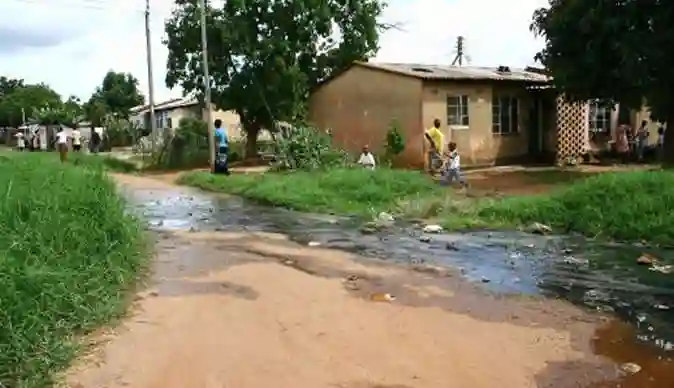President Emmerson Mnangagwa indirectly attributed the recurring cholera outbreaks in Zimbabwe to the opposition-led urban councils. He emphasised the urgent need for extensive renovation of local authorities to prevent diseases like cholera. The country has already witnessed over 100 deaths and around 500 confirmed cases.
In his column in The Sunday Mail newspaper, Mnangagwa criticised the opposition-led local authorities for their mismanagement, which resulted in the deterioration of towns and cities in Zimbabwe. He said:
Clean and safe drinking water is either unavailable or erratically supplied. Garbage collection services are largely dysfunctional, while broken sewers are a common sight, especially in our high-density suburbs.
While water bodies can be provided to potentially meet clean water requirements for our cities, it has become apparent that such a goal remains a pie in the sky until our local authorities are properly and efficiently run.
To compound it all, unplanned and uncontrolled settlements have created a runaway urban sprawl where uncontrolled human settlements have outpaced the provision of basic services that guarantee public health and essential amenities. Backbone infrastructure for water supply and reticulation in most of our towns and cities is broken, struggling, or non-existent.
President Emmerson Mnangagwa highlighted that the key to eradicating waterborne diseases like cholera lies in improving service delivery rather than solely focusing on healthcare facilities. He emphasised the need for comprehensive renovations of local authorities throughout Zimbabwe to prevent periodic outbreaks of preventable diseases. Mnangagwa also announced plans for a nationwide borehole drilling program, prioritising access to clean and safe drinking water, particularly in 35,000 villages. These boreholes will be solar-powered to ensure sustainability.
The Citizens Coalition for Change, responsible for most urban councils, did not provide a response when approached for comment. Marvelous Kumalo, the Harare Metropolitan Residents Forum chairperson, urged President Mnangagwa to stop blaming and instead collaborate with the councils to find solutions to the problem at hand. Kumalo told NewsDay:
It pities that instead of being a solution-holder, the President is playing a hide and seek game, blaming the opposition for the mess that we find most of our urban local authorities in at the moment.
Indeed, poor service delivery, especially lack of access to clean, safe and potable water, as well as chaotic waste management standards, are behind the cholera epidemic. But blaming each other will not address anything.
We urge the central government to accept responsibility and take itself as part of the problem so that, together with local authorities, they can come up with sustainable solutions to service delivery challenges facing our communities.
After all, local authorities are just sub-national governments that are part of the central government under the supervision of the President himself.
Kumalo emphasized that the responsibility for creating more water bodies rested with the central government. He criticized the government for failing to initiate the construction of the proposed Kunzvi and Muda dams, indicating a misalignment of priorities. Kumalo pointed out that the growing population in Chitungwiza and greater Harare, relying solely on the Morton Jaffray Water Plant, was unsustainable. He also highlighted the need for the central government to allocate sufficient funds to local authorities for sewer system upgrades to accommodate the rapid population growth.
Shepherd Chikomba, the national chairperson of the Zimbabwe National Organisation of Associations and Residents Trust, expressed concern about President Mnangagwa’s plan to drill boreholes in urban areas. Chikomba told NewsDay that instead of turning cities into rural areas, the government should invest in improving water infrastructure. He emphasised the need for treated tap water in urban areas while suggesting that boreholes should be drilled in rural areas. Chikomba also stressed that elected officials should prioritize representing all residents rather than their political affiliations.

